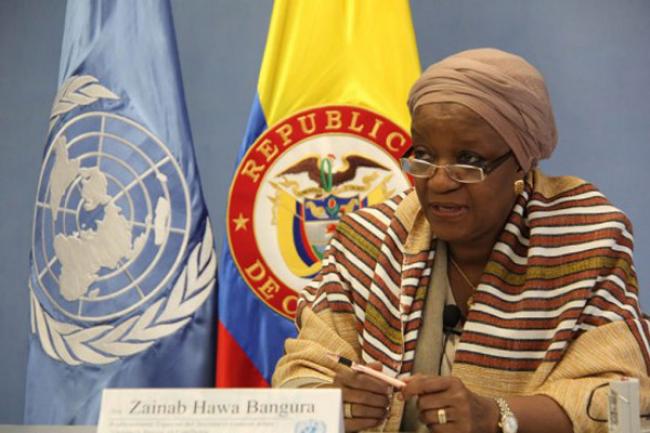05 Mar 2015

“There is a direct correlation between poverty, access to justice, and sexual violence,” Zainab Hawa Bangura said in a statement issued on Tuesday, emphasizing the need to protect poor and uneducated women and girls who are especially vulnerable.
She summarized initiatives undertaken to address conflict-related sexual violence in Colombia including the adoption of what she called “groundbreaking legislation” in guaranteeing access to justice for victims of sexual violence. In meetings with the Minister of Defense and Chief of the Army Staff, Bangura pledged continued UN collaboration with the army and police to ensure implementation of policies to eradicate sexual violence.
During the four-day visit, she also met with communities and said that all the women and girls she spoke with had one common and resounding message, “They want sexual violence crimes that have been perpetrated against them to be acknowledged by all the parties involved in the conflict, and they want perpetrators to ensure that sexual violence will not be repeated.”
On her visit to Chocó, an area known for its Afro-Colombian population, she was distressed to hear about the clear links between armed groups, illegal mining, narco-trafficking and sexual violence. The sexual violence that is happening in Chocó must be understood in the context of the conflict and addressed as such.
This will require crucial institutional reforms. She said the Havana peace process has put in place an important mechanism to ensure a gender perspective and urged both the Government and Revolutionary Armed Forces of Colombia – People's Army (FARC) to ensure that the ongoing peace process and the eventual peace agreement explicitly address gender issues and sexual violence in the conflict. This must be a central priority of any poverty reduction and development strategy going forward, Bangura added.
She said, “The women and girls who have experienced sexual violence also told me that to be able to pick up the pieces of their lives and reclaim their dignity, they must have opportunities for entrepreneurship and livelihood support for themselves and their families.”
She said she found it disturbing to hear about children between ages 12 and 15 years being forced by members of non-state armed groups and criminal gangs to serve as sex workers in mining areas.